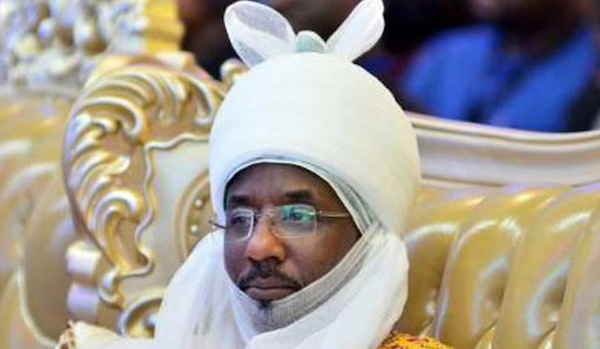The Emir of Kano, Muhammadu Sanusi II, has sharply criticized both Nigerian leaders and citizens for their persistent preoccupation with ethnic and religious divisions, while the global community has shifted its attention toward pressing issues like Artificial Intelligence (AI) and climate change.
Speaking at the second Kano International Poetry Festival (KAPFEST) on Saturday, Sanusi expressed deep concern over Nigeria’s prolonged leadership failures. He highlighted how the nation remains trapped in trivial disputes centered on religion and ethnicity, even as other countries prioritize transformative global challenges.
Hosted by the Poetic Wednesdays Initiative (PWI), the event provided a platform for the Emir to emphasize that effective governance is crucial to reversing Nigeria’s current struggles. He lamented that since gaining independence, the country has been plagued by poor leadership choices.
“The trajectory of a nation is directly linked to the caliber of its leaders, and unfortunately, Nigeria has suffered from inadequate leadership for decades. We cannot expect progress if we continue to elect those who lack the vision and capability to lead,” Sanusi remarked.
“When you observe the individuals at the helm in many regions, you wonder how such people came to power. This is evident daily in the media, in legislative chambers, and through the trivial disputes that consume our time and energy,” he added.
RELATED: Federal Court issues warrant for Plateau lawmaker over fraudulent TETFund contract
“While nations worldwide engage in critical conversations about climate change and the advancements in artificial intelligence, Nigeria remains entangled in debates over ethnic identities-Yoruba, Igbo, Hausa-and religious affiliations. These are discussions reminiscent of the 1960s, yet we are still stuck in them,” the Emir observed.
Sanusi urged the younger generation to take initiative and assume leadership roles, challenging the entrenched older politicians who have mismanaged the country’s resources and potential.
He also cautioned that the escalating borrowing by Nigerian governments, coupled with reckless spending, threatens to undermine the nation’s economic stability in the foreseeable future.






















